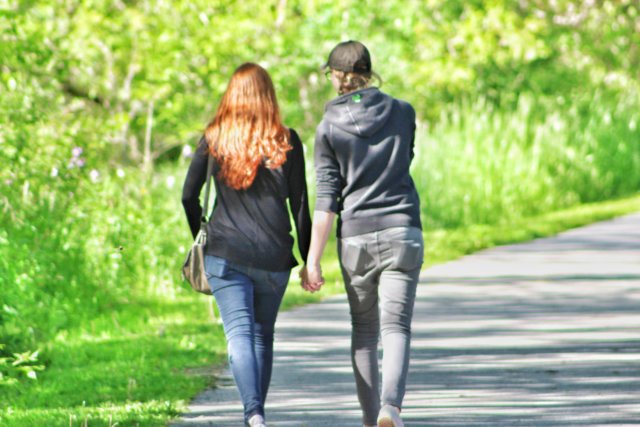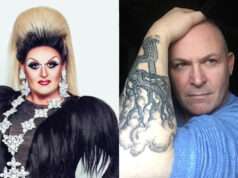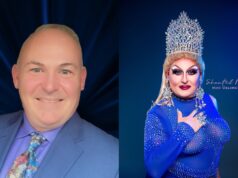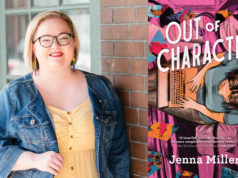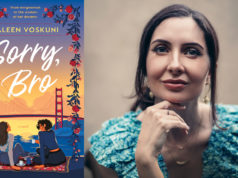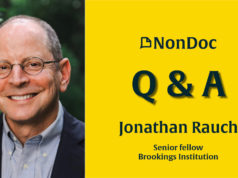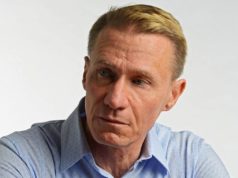
More than 7.8 million children in the U.S. don’t receive the love and support mandatory to the human experience. These are the children who wake up every morning thinking, “This body is not mine.” These are the children who become ostracized in their school hallways because they find themselves attracted to the same gender. These are the children who feel abnormal because they aren’t attracted to anyone at all.
I am one of these children.
About 10 percent of Americans ages 10 to 18 years are LGBTQ. These roughly 7,816,800 people are your neighbors, friends, children and students who face systemic discrimination every day. In fact, 42 percent of your young queer and gender-diverse acquaintances feel unaccepted in the community you share. This explains why only 64 percent of us are open about our identities as LGBTQ at school when, really, coming out shouldn’t even exist. We should not automatically assume that everyone we meet is straight or cisgender.
Wherever I’ve lived throughout my life, I have been what can only be described as the area’s “out-and-proud queer kid.” When you’re open about your identity, you often find others who share your qualities but have different experiences. A friend of mine, however, was kicked out of his childhood home after coming out as transgender. Similarly, my partner has faced multitudes of abuse after coming out as pansexual. A classmate faces countless amounts of bullying every day, ranging from homophobic comments to sexual harassment. To those who identify as straight and cisgender, it would be easy to assume that not every LGBTQ person experiences these things, however, we are twice as likely to experience violence than our cishet peers, and almost all of us have.
Adults should listen
Thankfully, some adults DO support us. I’ve heard endless stories of teachers refusing to acknowledge trans students’ birth names. Some parents that I have met willingly and proudly defend their queer children. From these people, I have learned the true meaning of unconditional love.
I have also witnessed some very compassionate activism when seeing these people stand up for LGBTQ youth. Many adults who take part in the lives of queer and gender-diverse youth would have a greater understanding if they listened to the story of raising an LGBTQ child because, although it is the youth’s firsthand experience, watching a child you love go through endless abuse for who they are has to be one of the most emotionally taxing experiences possible.
Online platforms offer an outlet
Seventy-three percent of LGBTQ youth say that they are more honest about their identity online than in the outside world. On social media, we have the power to express our experiences to the masses in safer ways than if we didn’t have access to those platforms. This being said, our entitlement to privacy needs to be recognized, as our safety can be in jeopardy when we choose to be open in spaces where we should be anonymous.
Leelah Alcorn, a 17-year-old transgender woman who completed suicide in 2014, posted of her experiences online before taking her life, asking if the way she was treated by her parents and therapists could be considered abusive. Alcorn was one of thousands of LGBTQ youth who try to find support online when they find it hard to obtain elsewhere. The support received from an anonymous person behind a screen, however, will never mean as much as receiving support from our teachers, friends and parents in real life.
How to raise inclusive children
Many adults in our lives often wonder about younger children who may ask questions when Johnny becomes Janine, or Elise asks Sara to be her prom date. Psychologists suggest parents teach children about the LGBTQ community starting at around age 5, using simple explanations such as, “Some men love men in the same way that some men love women. We call these men who love men ‘gay,’ and that is completely fine.” Or, “Sometimes, men will be born with the body parts of most women, but they are still men, and we respect that. We call these men ‘transgender’.”
Children are often curious but will never reject an individual unless they are taught that being different is wrong. In fact, when an adult explains the LGBTQ community to a child, they will often respond with “Oh, OK.” I’ve experienced this myself quite a few times.
It’s simply a matter of respect
This explanation of why we need support and how to support us comes down to one simple concept: respect for others. We are taught this from a young age, but so many tend to forget that “others” needs to be inclusive of all of us. The youth of the LGBTQ community often can’t escape the abusive, cruel, unsafe spaces that they are in, which is why every space needs to be safe.
Parents, love and accept your children unconditionally. Teachers, defend your mistreated students. Adults everywhere, understand, whether you accept us or not, that we will still be who we are, but we will just be unable to trust you. Beyond that, all humans deserve equal respect, love and acceptance — including the 7.8 million who currently lack it.








